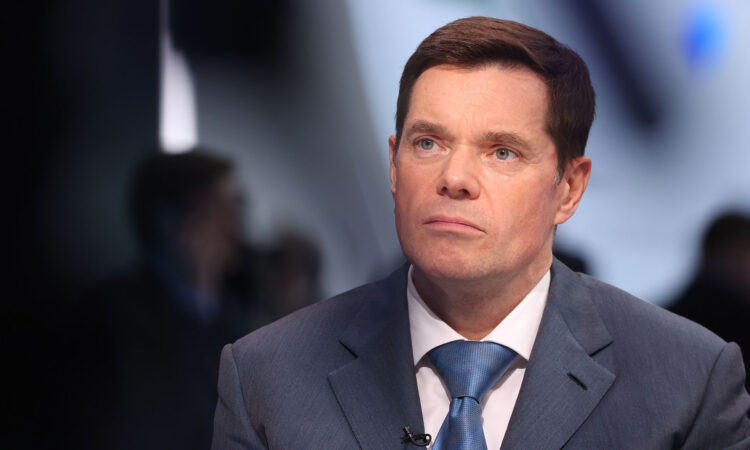Cypriot authorities face scrutiny over probe into Russian billionaire’s moves to dodge sanctions

New details have emerged about an ongoing criminal investigation by Cyprus authorities into how one of Russia’s richest men may have used the Mediterranean country as a conduit to avoid war-related sanctions. As part of the Cyprus Confidential investigation, the International Consortium of Investigative Journalists examined a major transfer of wealth by billionaire Alexey Mordashov as European sanctions descended upon him.
In response to questions about the transaction, Cyprus authorities told ICIJ a criminal investigation is currently underway, but the exact target of the probe and details of how it is being carried out remain murky. Following the publication of Cyprus Confidential by ICIJ and 68 media partners, Cypriot newspaper Phileleftheros reported that the authorities have apparently been sitting on the same information regarding Mordashov’s share transfer for several months and have taken little known action. Last spring, the German government formally notified Cyprus’s Ministry of Finance and national police of the share transfer, according to Phileleftheros.
Released earlier this month, Cyprus Confidential is a global collaborative investigation based on a trove of more than 3.6 million leaked documents that revealed the vast extent to which billionaires in Russian President Vladimir Putin’s inner circle have used the Mediterranean island as a sophisticated hideaway for billions of dollars of secretive cash of often suspect origin.
The new details about the criminal probe come as lawmakers and activists across Europe are calling for action on potential sanctions violations in the Mediterranean nation of Cyprus in the wake of ICIJ’s revelations. Last week, a member of the European Union Parliament urged lawmakers to launch an investigation into the Cyprus office of the global accounting giant PwC, a key focal point of the ICIJ project.
ICIJ’s reporting focused on the island’s financial services industry that specializes in creating secretive trusts and shell companies, which allow the wealthy to hide cash and conduct financial transactions with secrecy. After Russia launched its full-scale invasion of Ukraine in February 2022 — and the threat of Western sanctions loomed large — the island saw a flurry of rushed and secretive transactions between numerous shell companies owned by politically connected Russian oligarchs. The reporting included a close look at the operations of the Cyprus office of PwC, the London-based global accounting giant.
ICIJ assembled a team of more than 270 journalists from 54 countries and one territory and provided access to the leaked records from six Cyprus-based financial service providers and a Latvian firm that sells Cypriot corporate registry documents through a website called i-Cyprus.
The 3.6 million leaked files at the heart of the Cyprus Confidential investigation come from six financial services providers and a website company.
The providers are: ConnectedSky, Cypcodirect, DJC Accountants, Kallias & Associates, MeritKapital, and MeritServus in Cyprus. The MeritServus and MeritKapital records were obtained by Distributed Denial of Secrets. Leaked records from Cypcodirect, ConnectedSky and i-Cyprus were obtained by Paper Trail Media. In the case of Kallias & Associates, the documents were obtained from Distributed Denial of Secrets, which shared them with Paper Trail Media and ICIJ. DJC Accountants’ records were obtained by Distributed Denial of Secrets and shared by the Organized Crime and Corruption Reporting Project. The partner organizations shared all the leaked records in the project with ICIJ, which structured, stored and translated them from several languages before sharing them with journalists from around the world. Additional records came from Latvia-based Dataset SIA, which maintains the i-Cyprus website, through which it sells information about Cyprus companies, including Cyprus corporate registry documents.
ICIJ reported that PwC assisted with the Mordashov transaction, which was part of a bid to help Mordashov elude EU sanctions that threatened to freeze a $1.4 billion investment in TUI Group — a German travel company — by transferring ownership to Marina Mordashova, whom the EU has identified as Mordashov’s wife. Three months later, in early June 2022, she was sanctioned by the United States and the EU. The German government and the travel company, TUI, have declared the share transfer invalid.
Mordashov, with a net worth of roughly $21 billion, is now sanctioned in the U.S. and United Kingdom, as well as the EU.
The Cyprus Confidential investigation explored various other clients of PwC Cyprus, which has long been a go-to firm for wealthy Russians seeking to move money to Cyprus. These clients included now-sanctioned Russian billionaires Alexander Abramov, Alexander Frolov and Oleg Deripaska; Deripaska now faces criminal charges for evading U.S. sanctions.
The Cypriot newspaper Phileleftheros also reported that German officials weren’t the only ones flagging the Mordashov transaction to Cypriot authorities. The newspaper reported that the information was also sent to the Cyprus Bar Association in early May and “was promptly forwarded to the police for investigation, as there seemed to be potential criminal liability.”
Phileleftheros quoted an official as saying the country’s investigation did not target PwC Cyprus. In comments to ICIJ earlier this month, PwC said it was unaware of the criminal investigation in Cyprus.
On Nov. 20 — shortly after Cyprus Confidential was published — Cypriot officials, including the country’s attorney general, met at the nation’s presidential palace to discuss improving oversight of sanctions laws and improving future investigative work for sanctions cases, according to Phileleftheros. Cypriot media also reported last week that the nation’s attorney general has received complaints of sanctions violations in the “double digits,” and that the country’s president has requested assistance from authorities from another country who are experts in sanctions law.
At least for the case relating to Mordashov, Phileleftheros noted that Cyprus officials appear to be dragging their feet: “Now the ICIJ consortium and international journalistic revelations have beaten them all to it.”






